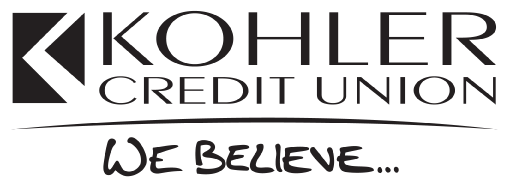Students Learn Financial Literacy With Kohler Credit Union
Ask an adult what they wish they understood more clearly before heading into the real world, and many will answer how to better manage household finances.

Originally posted on sheboyganpress.com
A quick glance at Americans’ collective debt, which totals more than $11.52 trillion, proves that there are lessons to be learned.
To help improve that knowledge, Kohler Credit Union has partnered with some area middle and high school teachers to provide their classes access to Bonzai, an online education tool designed to introduce students to adult dilemmas such as managing debt, reconciling bank statements, balancing budgets and making tradeoffs.
The program features real-life simulations that build financial knowledge in a format that is fun and easy to comprehend.
“It shows how I should distribute the money,” said Zach Strehlow, a junior at Plymouth High School who is taking a personal finance class as part of the school’s graduation requirement.
The online learning program begins with students needing to follow a budget in a controlled setting. They need to divvy out their paychecks into six virtual jars: food, rent, utilities, car, other and reserves.
“I don’t think it would be difficult to take what I learned here and apply it, to the best of my abilities,” said senior Tim Matz, who recognizes that sometimes managing a budget is easier said than done.
The beginning stages of the program walk students through what to put in each jar based on the circumstance. While some scenarios are easy, others are more complicated.
“Ugh, these credit cards,” a student mumbled out loud in class earlier this month. He was getting frustrated by the debt being incurred.
This particular situation seemed to serve as an eye-opener for many students who were able to see more clearly how quickly debt adds up when the decision is made to spend money on other things rather than on paying down the debt.
The second portion of the program is a game in which students receive paychecks, have expenses and need to save exactly $2,000 for their college education – and not $1,999.99 explained their teacher, Todd Williams.
“The importance of financially literacy cannot be understated. Individuals that have financial knowledge are more apt to plan for the future and be responsible with their money and less likely to experience difficulty with debt,” said Laura Gabrielse of Kohler Credit Union.
The credit union was introduced to Bonzai about two and a half years ago when they were contacted because a teacher in the area was looking to implement the program in her classroom and needed a sponsor.
Since then, the credit union has earmarked a portion of its budget each year to support Bonzai and are able to sponsor about 15 teachers a year.
Williams likes the way the Bonzai program couples with some other online learning tools he has students use, one of which takes into account the emotional side of financial decisions, such as, do you pay the $500 for a vet bill or pay something else.
Not easy decisions, Williams said.
Taking a semester-long financial literacy class is a requirement at Plymouth High School. And despite being well into the second quarter, Williams said that only two or three students out of his three financial literacy classes aced the Bonzai pre-test.
Once the program was completed, seven aced the post-test and 28 increased their scores. By the end of the semester Williams hopes students will have a better grasp on managing their personal budgets now and in the future.
Senior Jesus Guzman said he believes this class will help him start building good financial habits now.
“My whole approach with the class is to look at where they are now and take them through life, through retirement,” even though some of those concepts seem so far off from where they are now, Williams said.
He hopes the class gives students a solid foundation of personal financial literacy and allows them to take that into their daily living during college – and beyond.
Teachers interested in using the Banzai program can visit teachbanzai.com or call 888-8-BANZAI.